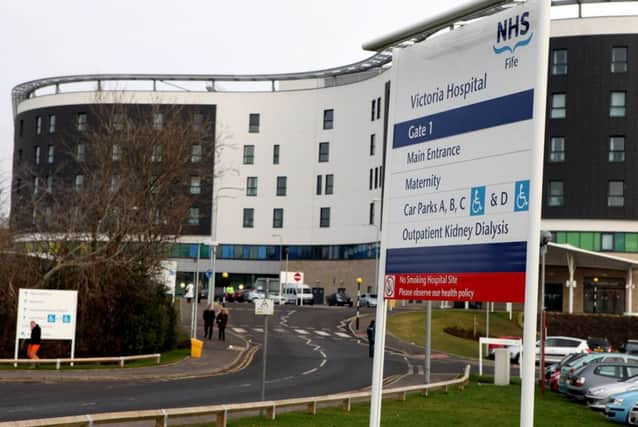Fife hospital to use facial recognition to detect vital signs


Victoria Hospital in Fife will be first to trial the innovative camera-based technology, developed by scientists at the University of St Andrews.
Currently clinicians use a finger clip device to measure vital signs in patients such as pulse rate and blood oxygen levels.
Advertisement
Hide AdAdvertisement
Hide AdBut the new technology – which will be tested at the hospital’s respiratory ward – can detect blood oxygen levels and heart rate in up to six people simultaneously by using specialised camera images.
The remote pulse oximeter is the first of its kind in the world and was developed by computer scientists at the University of St Andrews.
Dr David Harris-Birtill, lecturer in computer sciences at the University of St Andrews, is leading the project.
He said: “When you go into hospital, your vital signs are measured to show clinicians how well you are.
“A clip at the end of your finger can let them know if you are getting better or worse. The clips are great, but one problem is you need a nurse to clip them on, which means a wait of 45 minutes, or however long, before they can start measuring how well you are.
“Wouldn’t it be great if as soon as a patient walks through the door, a doctor can see how well they are doing?”
The technology has been developed at a lab in St Andrews and uses technology from Microsoft’s Kinect motion controller for games consoles. It will now be taken to Victoria Hospital’s respiratory ward, where clinicians will be able to detect oxygen levels in patients.
Dr Harris-Birtill, who is founder of start-up Beyond Medics Limited, said the technology also has the potential to be used at A&E, post-surgical wards and care homes.
Advertisement
Hide AdAdvertisement
Hide AdHe hopes the system will be trialled across other hospitals in Scotland and then globally.
He said: “It has the potential to make patients’ lives more comfortable. We will be able to detect those in trouble sooner and help patients sooner. It can also help save time for patients, nurses and clinicians.”
Justene Ewing, chief executive officer at the Digital Health and Care Institute, who funds the project, said: “Our nation has a clear agenda to boost productivity through innovation and enterprise, so Scotland is the place to be supported and engaged in digital health and care.”